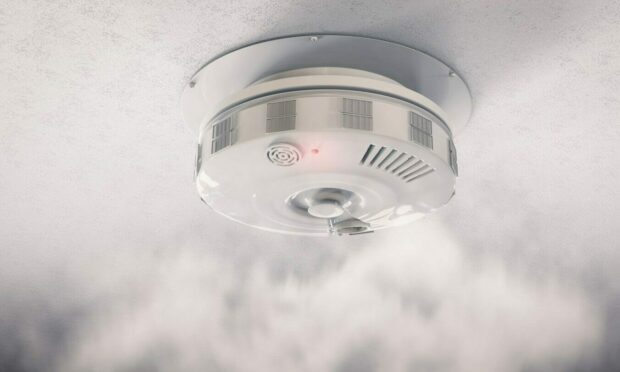Thousands of council properties across the north and north-east are yet to be fitted with interlinked smoke alarms despite new laws.
The legislation, which came into force on February 1, requires all households in Scotland to have the appliances installed.
It is on councils to ensure the alarms are installed for their tenants.
Across Aberdeen, a total of 2,500 council properties are still without alarms due to refusals from tenants and an inability to gain access.
This is understood to be more than 10% of the council’s total housing stock.
In Moray, there are 555 council homes without the alarms fitted, 300 in Highlands and 48 across Aberdeenshire.
The new appliances must be installed in the room where individuals spend most of their time, as well as in kitchens and in hallways.
‘Forced access’ considered
Moray and Aberdeenshire councils are considering using “forced entry” in order to access remaining properties.
But Highland Council said it does not foresee the need to pursue this strategy as the roll-out is almost complete and tenants have mainly complied.
And Aberdeen City Council confirmed it aims to have a “new policy and procedure” in place by the end of the month to “facilitate access” to remaining properties.
In Moray, a total of 555 of council homes are without alarms – representing 8.9% of the council’s housing portfolio.
They have successfully installed appliances in more than 5,000 homes, completing just over 91% of council homes in the area, and an improvement on 83% in January.
Around 300 homes in the Highlands are yet to be “fully compliant” out of 14,500 local authority owned homes, while Aberdeenshire has around 48 outstanding.
Highland Council said of the homes yet to be completed, some are short of one or more alarms, but all have smoke detection equipment.
Just over 2% of local authority homes in Highland are without alarms, with the number of homes compliant with the new law increasing from 95% in January to almost 98%.
The council says reasons for being unable to fit the alarms include access issues relating to Covid-19 and shortages of smoke alarm equipment.
A Highland Council spokeswoman said: “Highland Council has a responsibility to update all the smoke alarms in our houses to meet the new fire safety legislation.
“The council is currently continuing our programme of works and is reporting to the Scottish Housing Regulator on compliance with the new legislation.”
In Aberdeenshire, 11,941 properties have been fitted with the new alarms, with a compliance rate of 99.6% to date.
This has improved more than 10% since January, when the council reported it was at 89% compliance.
Shetland and Orkney councils were approached to provide figures but did not respond.
‘Legal duty’ on councils
The new standards were introduced following the Grenfell Tower tragedy in 2017 in a bid to “save more lives”.
But the Scottish Government came under fire for the “chaotic” roll-out of the legislation earlier this year.
Government officials have said there will be no penalties for non-compliance and that no one will be penalised if they need more time.
Scottish Conservative community safety spokesman, Russell Findlay, said: “Fire safety measures are welcome but it’s absurd to pass a law that could criminalise Scots for not installing interlinked alarms but then refuse to tell people when this will be enforced.”
Scottish Labour housing spokesman Mark Griffin said: “This policy has been a farce from start to finish.”
Concerns were raised over a lack of awareness over the changes, the costs for homeowners during a cost of living crisis and shortages of alarms.
The appliances cost an average of £220 but will be more expensive if a tradesperson is required to fit them.
A Scottish Government spokesman said: “We know social landlords including councils are working hard to meet new standards requiring interlinked fire alarms, and the vast majority of homes now meet them.
“Official figures on compliance by local authorities and social landlords will be confirmed by the Scottish Housing Regulator through its annual report on the Social Housing Charter in the autumn.
“At the start of February, when the new standard came into force, the Scottish Housing Network estimated that more than 90% of local authority housing already complied with the legislation.
“The rules place a legal duty on local authorities, not homeowners, to ensure homes are fitted with the correct alarms.
“As we have said, we expect councils to take a proportionate approach to ensuring homes meet the new standards, but we encourage homeowners to install the alarms as soon as they are able as they can help save lives.”

